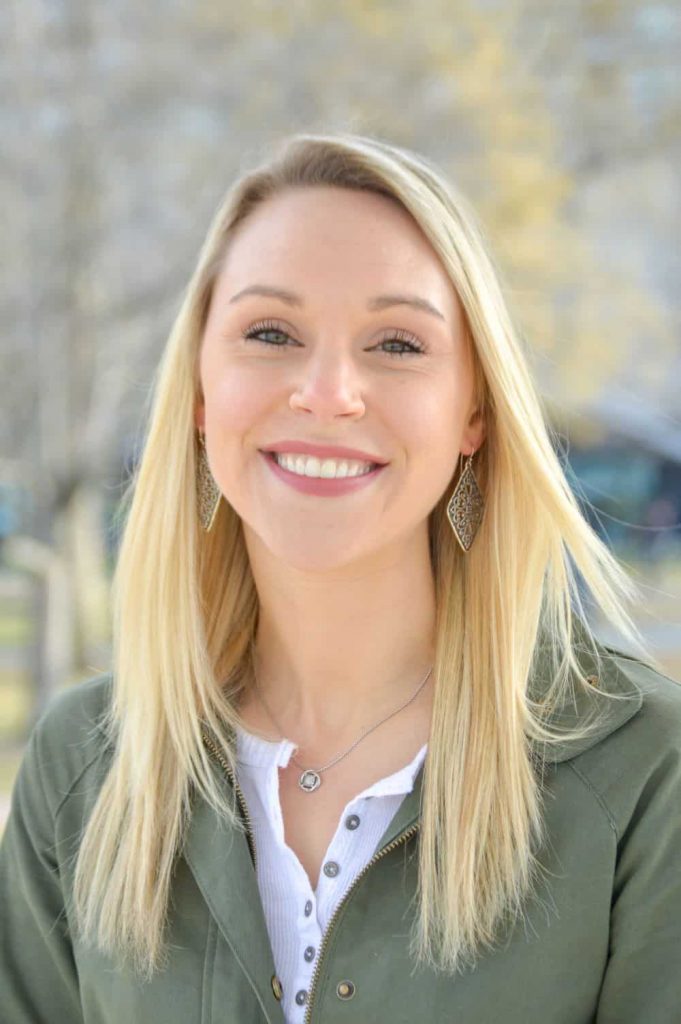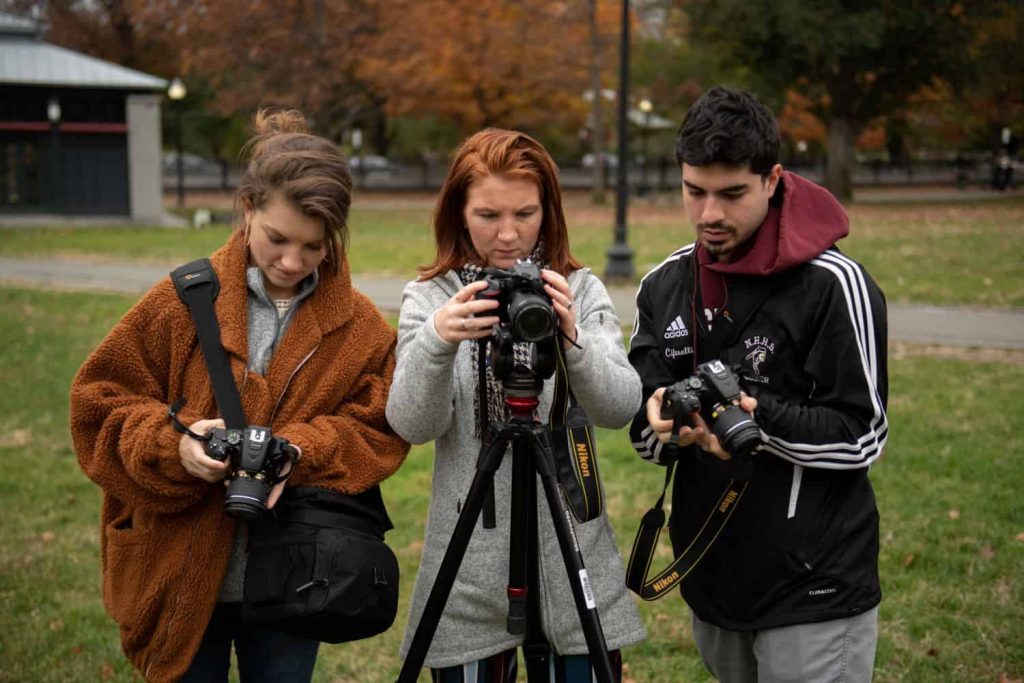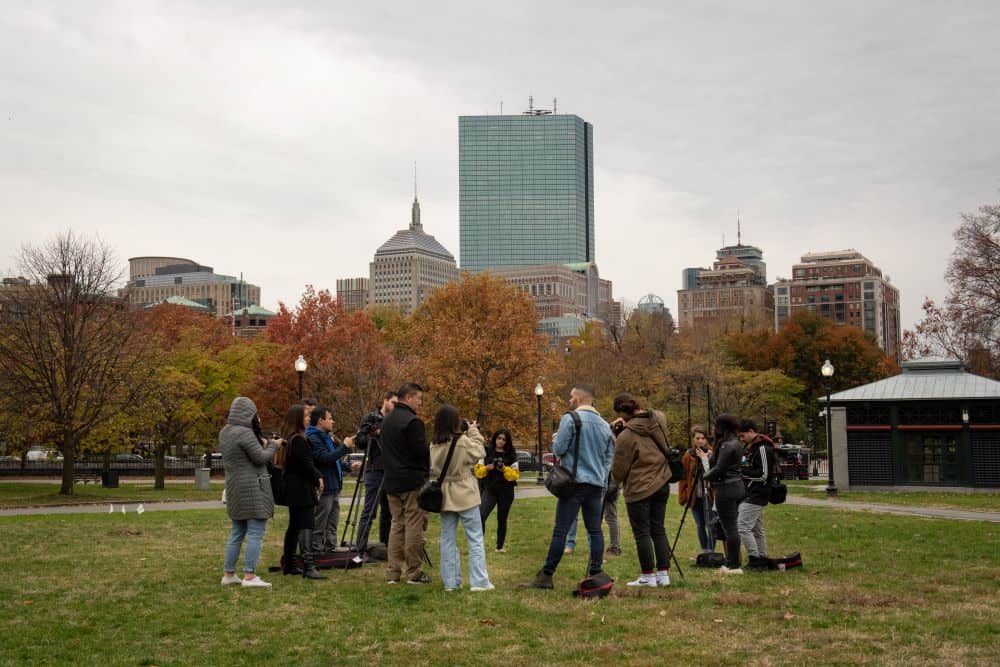
Are you interested in filmmaking or screenwriting? Today we’re hearing from Haley Bresnahan, the admissions counselor for Emerson’s graduate film programs. During this interview, Haley will talk about all the unique benefits of studying film and screenwriting at Emerson.
Q: What programs do you recruit for?
A: I recruit for Emerson’s Film and Media Art (MFA) and Writing for Film and Television (MFA) programs.
Q: What makes Emerson’s film and screenwriting programs stand out?
A: There are a few things that make the Film and Media Art MFA unique. First, the program has different entry points for students with previous experience in the field. This allows experienced students to shorten their program length and graduate faster.
The program’s flexible curriculum is another thing that makes it unique. After students take their foundational and core requirement courses, they can take whatever electives interest them and will support their thesis project. Through electives and their thesis project, students can choose to focus on narrative fiction film, documentary, experimental media, interactive media, or installation art.
A final perk of this program is that Emerson does not claim rights to students’ thesis projects. Students retain the rights to anything they create while in the Film and Media Art MFA, so if they want to continue expanding on their work after graduation, they can do so.
The Writing for Film and Television MFA is also unique for several reasons. First, it is a low-residency program, meaning each semester starts with a week-long, in-person residency, and the rest of the semester takes place online. During each residency week, a different award-winning screenwriter, called the Semel Chair, teaches a master class where they discuss their career path and writing process, conduct a workshop, and share a screening of their work. Previous Semel Chairs include Adele Lim, Emerson alum and writer of Crazy Rich Asians, as well as Mara Brock Akil, executive producer of Girlfriends. After each residency, students return home and complete two asynchronous online courses for the rest of the semester, which allows students to set their own schedules and work while in school.
The other thing that makes the Writing for Film and Television MFA unique is its cohort model. Students move through the entire program with the same 24 peers, allowing students to build a network of creative peers that they can carry over into their professional careers.
Q: What are the cohort sizes like?
A: We try to recruit as many students as possible, but to maintain a tightly-knit community feel, we accept a smaller number of applicants. The Film and Media Art MFA accepts about 24-28 new first-year students each year. The Writing for Film and Television program brings in a cohort of 24 students per year.
Q: What is the benefit of getting an MFA?
A: Anyone can be self-taught, but completing an MFA program accelerates how much you learn about the craft in a short amount of time. Students in an MFA also get constant feedback from peers and faculty, which helps them refine their craft.

In an MFA program, students develop a creative network of peers, which is extremely helpful in the professional world. As creative professionals in the film industry, it’s all about making connections. Having a network of peers at the start of your professional career proves to be invaluable for our students in the long run.
Q: Do students need to have an undergraduate degree or experience in film or screenwriting?
A: No, we do have people coming to both programs who have studied or worked in another field but are passionate about filmmaking, media art, and screenwriting and are ready to pursue their interests in an academic setting for the first time. When screening applicants, we look for creative potential, not necessarily years of experience.

Q: How can students make their applications more competitive?
A: When it comes to the essays and creative portfolio, your goal should be to convey your voice as a writer, filmmaker, or media artist. The more the essay and creative sample can have synergy to them, the better. For example, if you talk about a passion for feminist film in your essay, try to include that theme in your sample work to show that you understand your voice and vision.
Q: Why should students choose Emerson for their graduate journey?
A: Emerson encourages students to explore and push their boundaries as creatives. They don’t force you to stay in one box or genre. In fact, Emerson emphasizes taking risks and failing rather than playing it safe. We encourage students to train and try out things they might not have otherwise, which helps students uncover their true creative voice.
The supportive graduate community is another reason to come to Emerson. Emerson is a small, tight-knit school where students collaborate rather than compete. This creates a supportive network of creative professionals that students can tap into long after graduation. Once you come to Emerson, it will always remain home for you.
We hope this Q&A with Haley has helped you get to know Emerson’s film and screenwriting programs a little better. For more information about these graduate programs, be sure to schedule a call with an admissions counselor. To hear from students within the programs, check out our Day In the Life blogs. Here you can read about current Film and Media Art students and Writing for Film and Television students.


Leave a Reply